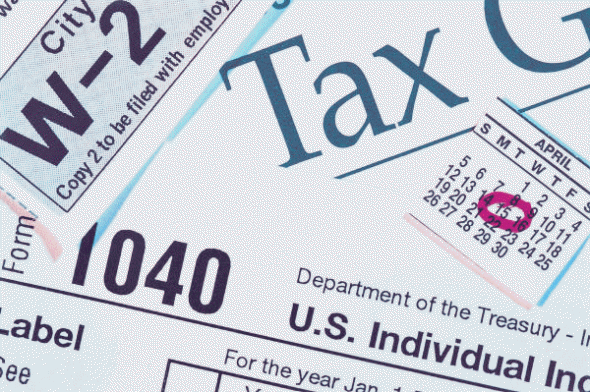 With only a few weeks left before the end of the year, instead of making a mad dash to the mall, make a mad dash to your accounting books and look for some last-minute ways to save money, spend money and prepare for the 2011 tax season. It’s not too late to get your books in order for a fruitful year. Below are some tax tips you may have overlooked, forgot or simply did not know.
With only a few weeks left before the end of the year, instead of making a mad dash to the mall, make a mad dash to your accounting books and look for some last-minute ways to save money, spend money and prepare for the 2011 tax season. It’s not too late to get your books in order for a fruitful year. Below are some tax tips you may have overlooked, forgot or simply did not know.
Although, many of the contributors are tax professionals, please consult your tax advisor for additional information and details on these tips apply to you.
1. Make efforts to collect receivables in 2010 and opt to accelerate bonus payments into 2010 instead of January 2011. Serene Buckley via Mary Canning, Dean of the School of Taxation and School of Accounting, Golden Gate University, San Francisco
2. Defer income until January if possible so you will not be taxed on it until 2011. If you own stock that has decreased in value and you plan to sell it, do so before the end of the year so you can claim the capital loss on your 2010 tax return. Charles E. McCabe, CEO, www.peoplestax.com
3. Prepare for January “sticker shock.” Several factors could lead to Americans taking home less money in their paychecks starting in January: expiring Bush Tax Cuts, expiration of the Making Work Pay credit (extra $400 – $800 in your paycheck) and Higher health care premium costs. Kathy Pickering,http://www.hrblock.com
4. Pay state and local income taxes now, that way you can deduct them for 2010. Any payments made on a credit card or by check dated before the end of 2010 are eligible. Joshua Friesen,http://www.clergytaxnet.com
5. The new healthcare legislation passed this year will require businesses to issue Form 1099-MISC to any for-profit corporation paid $600 or more in a calendar year starting in 2012. Now is the time for businesses to begin updating their accounts payable procedures and processes to collect this additional information. By taking action this year-end, businesses will be better prepared to deal with the new rules once they go into effect. Elizabeth Sweigart, http://www.opportune.com
6. Establish a file folder marked 2011 Taxes. As you start to receive the annual on slot of “Important Tax Documents” in the mail simply place them in the folder you created and enjoy knowing where all of your documents are when you are ready to file your return. Gather all of your receipts and place them in a resealable envelope or Ziploc bag to limit the risk of losing one around the house or during transport to your tax preparer. Ever stopped quickly at a stoplight and had the entire file folder empty out into the floorboard of your car or have something blow out a rolled down window? How valuable could that $100 receipt be? Depending on your tax bracket a lot, for every $100 receipt lost you could miss $28 to $50 deduction. Denise Winston, http://moneystarthere.com or http://denisewinston.com
7. If you already have tax problems, stop procrastinating. The worst thing you can do is to ignore your tax problems. And with tax hikes planned for 2011, you need to get your own house in order now. If you have un-filed tax returns and/or you currently owe the IRS money, deal with it now before the new tax hikes kick in. Once you are liable for higher taxes, your penalties and interests will only increase with any subsequent unpaid taxes. If you have failed to file taxes in the past and feel like the IRS is breathing down your back, there is tax relief available. Michael Rozbruch, http://www.taxresolution.com/
8. Equipment, furniture, and vehicle purchases made before December 31, 2010 will be eligible for a temporary bonus depreciation which allows an extra 50% of the cost of the item to be depreciated in the first year it’s used in your business. This can be especially beneficial for passenger vehicles used in a business as, without the bonus amount, depreciation on them would be limited to less than $4,000 in the first year. Jan Zobel EA, www.JanZtax.com
9. Moving expenses. If you had to move because of a job, you can deduct the cost of moving as long as the job was at least 50 miles from where you lived. Ornella Grosz, www.moneyliciousblog.com
10. The best tip that helps me organize for taxes is to charge as many items as I can on my debit card. I then make copies of my debit card statements and place them into a file so that I can go through them line by line. This technique allows me to keep more accurate records and be able to better prepare for tax season. Derrick Hayes, http://www.DerrickHayes.com
11. In my business as a consultant to entrepreneurs entering franchise business ownership from corporate America, I see many that have been downsized or displaced. This means they could have had significant income during the year and a severance package. I encourage my clients to meet with their CPA before the end of year to understand the tax benefits of purchasing their new franchise business in the same year they experienced higher income as opposed to waiting until the next year when they are likely to have less income as there business opens and grows. By doing this they begin to enjoy the many attractive tax deductions provided by the government to induce us to start our own businesses and create jobs for the economy. Gordon Dupries, www.frannet.com/gdupries
12. Take stock of your home office. If part of your home is designated solely for business, you may be eligible to claim a tax deduction for some of your expenses. Be careful what you claim, however. The part of your home that you are claiming must be the principal place of business and cannot be used for something other than business. Karen Kobelski, http://www.bizfilings.com
13. One of the easiest win-win situations for year-end tax planning is to clean out your closets and donate what you do not need to charity. Make an accurate list accurately detailing the cost and true fair market value for each item that you are donating. You can deduct the lower of the cost or fair market value. This way you helped out some one in need and get a tax deduction at the same time! Gail Rosen, www.gailrosencpa.com
14. Buy health insurance through your employer even if you have an existing condition, you cannot be denied. Employers are required to cover no less than 72.5% of the cheapest health insurance plan for individuals, and no less than 65% of the cheapest plan for families. Small businesses should offer health insurance to their employees to receive a 35% tax credit. Harrine Freeman,http://www.hefreemanenterprises.com
15. Estimate next year’s taxes. It is a good idea to estimate next year’s taxes and plan based on the estimate. This is especially important for people who will be impacted by the expiring tax cuts. All tax brackets are likely to increase. Major changes are in store for married couples and parents, as well as people who owe estate tax. Those who must pay estimated income taxes could estimate their 2011 earnings to sketch out their tax burden. Jeff Staley: www.freedomtaxrelief.com
16. Hit the books or attend a business conference. Small business owners who are interested in furthering their education should be aware of current tax incentives. The amount and type of tax deduction depends on a few things (1) classification (sole proprietorship or C corp.) (2) type of education, and (3) the small business owner’s personal tax background. Examples include: Small business owners can take advantage of the AMERICAN OPPORTUNITY CREDIT of up to $2,500 per year for the first four years of higher education through 2010. After 2010, it will revert to the HOPE CREDIT of up to $1,800. Small Business owners can deduct attendance fees, and even room and board for business/educational seminars they attend. Paul Heiselmann, www.bdo.com
17. Tax loss harvesting. Consider selling, at a loss, an investment that does not belong in your portfolio and allocating that money towards a more appropriate investment. This will allow you to offset capital gains and taxable income. Tom Mooney, https://www.veritat.com/
18. With the IRS, spelling counts. Double-check the correct spelling of employee names and addresses, and especially Social Security numbers. Do the same for 1099 payees. Len Redon,www.paychex.com
19. Use the 12 by 12 Method to get organized for tax time. Give your self 12 days during the next few weeks to through your bank transactions and credit card transactions to isolate those charges that are tax deductible. If you give yourself 12 days by 12-31-10, you will be a head of the game and will start your New Year off organized. Karla K. Dennis, Cohesive, Enrolled Agent
20. If you own a small business, consider paying your kids to help you and take a tax deduction of up to $5,800 per child depending on the job they are doing. The child will not have to pay income taxes if they are under 18 and you will not have to pay employment taxes. This is a perfect way to shift income off of your return. Karla K. Dennis, Cohesive, Enrolled Agent
21. Make up an estimated tax shortfall with increased withholding. If you’re in danger of being penalized for not paying enough tax throughout the year, try to make up the shortfall through increased withholding on your salary or bonuses. Paying the shortfall through an increase in your last quarterly estimated tax payment can still leave you exposed to penalties for underpayments in previous quarters. But withholding, is considered to have been paid ratably throughout the year. So a big bump in withholding on high year-end wages can save you in penalties when a similar increase in an estimated tax payment might not. Doreen Griffith, http://www.grantthornton.com/sanfrancisco
22. Know what medical deductions are allowed. There are numerous medical costs that are deductible including lasik eye surgery, doctor-prescribed weight loss programs and capital expenses for ramps, railings, etc. installed in a home to accommodate disabilities. Don’t overlook mileage to and from the doctors, hospitals, and the pharmacy. Joshua Friesen, http://www.clergytaxnet.com/
23. Start saving now. While IRA contributions are permitted through the tax-filing deadline, making a contribution early can provide additional tax-deferred growth potential. Alison Cahill,http://www.etrade.com
WANT TO RE-POST THIS ARTICLE ON YOUR BLOG OR USE THIS ARTICLE IN YOUR EZINE, E-NEWSLETTER OR WEB SITE? You may, as long as you include this complete blurb with it:
For over 18 years, Simplicity Mastered™ founder and CEO A. Michelle Blakeley has owned or managed small businesses and nonprofit organizations. Expert in her field, Blakeley personally guides her clients out of their Business Brain Freeze™ to streamline operations, increase return on investment, and attain quantifiable results. Forbes.com and FinancialPost.com each recommended her as one of 30 Women Entrepreneurs to Follow on Twitter, joining the experts who know that Blakeley is a master at growing small businesses … and doing it with “Simplicity.”
















